
The 43rd Infantry Division was a formation of the United States Army from 1920 to 1963, serving in the Pacific during World War II. It was activated in 1920 as a National Guard Division in Connecticut, Maine, Rhode Island, and Vermont. The 143rd Regional Support Group of the Connecticut National Guard now carries on the heritage.

Edward Martin was an American lawyer, military officer and Republican party politician from Waynesburg, Pennsylvania. He served as the 32nd governor of Pennsylvania from 1943 until 1947 and as a United States Senator from Pennsylvania from 1947 until 1959.

The Connecticut Military Department is a state agency of the government of Connecticut. Its primary components are the Connecticut Army National Guard, the Connecticut Air National Guard, and four companies of the state militia. The Military Department of the State of Connecticut traces its origins to May 11, 1637, when the "General Courts" established a military arm of the provincial government. In 1939, the State's Military Department was established to consolidate the offices of Adjutant General, Quartermaster General, Armory Board, and Armory Board Inspector.

George Haven, born in New London, Connecticut, on March 27, 1844, was the thirtieth Adjutant General of the State of Connecticut. He was the son of Urbane and Sarah (Rogers) Haven. Both were members of old Connecticut families. Haven acquired his education early in public schools of New Haven. He loved books, but with the rumors of war he joined the National Guard at the age of 17. After being discharged on November 19, 1864, Haven returned home to New London and worked for the Wilson Manufacturing Company, with which he was connected for 18 years. He left the employ of the Wilson Company at around 1886, and the next year went to work for the Quinnipiac Company. In 1888 he was appointed Chief of police of New London. Haven served at the City of New London for six years as Alderman and Councilman.

Major General William Anthony Cugno was born April 4, 1948, in Waterbury, Connecticut. He was the son of Anthony and Marie Cugno of Harwich, Massachusetts. He graduated from Waterbury's Crosby High School in 1967. He earned a bachelor of arts degree in political science from Eastern Connecticut State University in Willimantic, Connecticut in 1984 and a master's degree in public administration from Shippensburg University, Shippensburg, Pennsylvania, in 1991.
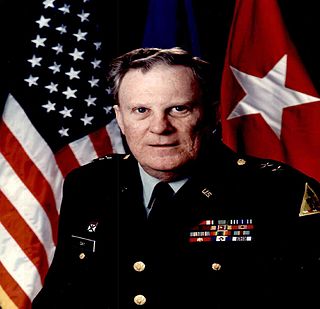
David William Gay was the Adjutant General of the state of Connecticut from 1992 to 1999. He began his military career with the United States Marine Corps and later transferred to the Army. He served for over 39 years in the military.

Kenneth F. Cramer was an American politician and United States Army major general who served as Chief of the National Guard Bureau.
The 4th Connecticut Infantry Regiment was an infantry regiment that served in the Union Army during the American Civil War.
Justin Hodge, born in Roxbury, Massachusetts on April 21, 1815, was a Connecticut politician who served in the state legislature for many years. He represented his hometown of Barkhamstead as a loyal member of the Democratic Party. He served in the U.S. Army during the Civil War as well as the Mexican War before that. He briefly served as the Adjutant General of Connecticut in 1855.
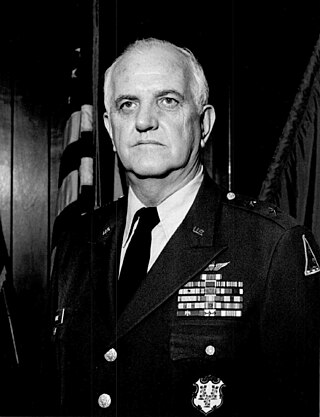
John Francis Gore was an American Army major general. He served in the United States Marine Corps during World War II and with the Connecticut National Guard in the Korean War. His career would culminate with being appointed as the Connecticut Adjutant General in 1982 but would be forced to resign in 1985 amid various scandals.
Brigadier General (Ret.) Ronald Paul Welch was an American Military officer and the former Director of the Joint Staff of the Connecticut National Guard. He began his military service in 1978 when he enlisted in United States Army and served as an NCO in 2nd Bn (Ranger) 75th Infantry. He was later commissioned, through Connecticut Military Academy in August 1984 through the Officer Candidate School.
William Ferson Ladd, born in Spencer, Massachusetts on 14, February 1896, was the thirty-third Adjutant General of the State of Connecticut. During World War I, Ladd was an Army pilot.
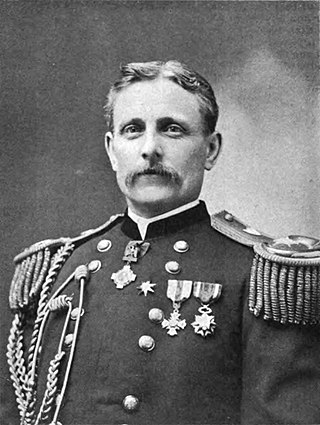
George Malpas Cole, was the thirty-second Adjutant General of the State of Connecticut. He was the son of George Cole and Jane A. Malpas. Born in Portsmouth, England, his family moved to Massachusetts where his father was a civil engineer. Cole was educated in public and private schools. Cole was also tutored by his father, where he became an assistant to his father. Cole would later become associated with a wholesale and a grain business in New London.
Reginald Beardsley De Lacour was the thirty-fourth Adjutant General of the State of Connecticut. From 1927 to 1935, he served as treasurer of the Veteran’s Home commission and served on Governor Trumbull’s advisory board on aviation from 1927 to 1931. He was a chairman of the Fairfield County board of County Commissioners during 1931 to 1935 and was a chairman of the Stratford Republican town committee for many years.
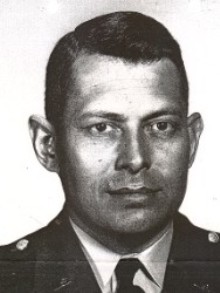
John Frederick Freund was the thirty-sixth Adjutant General of the State of Connecticut.

Edward Donald Walsh born in Waterbury, Connecticut on April 8, 1917, was the thirty-sixth Adjutant General of the State of Connecticut.

The 169th Infantry Regiment is an infantry regiment of the United States Army and Connecticut National Guard. The regiment may be traced to English train bands that formed in settlements of Windsor, Hartford, and Wethersfield as these settlements consolidated from 1633 to 1636 and deployed during the Pequot War from 1636 to 1638. As the settlements in what would become Hartford County grew, the militia was reorganized for drill in 1672 essentially into a county regiment. The U.S. Army recognizes the regiment from its reorganization by an act of the Connecticut Assembly on 11 October 1739 as the 1st Connecticut Regiment. It is Connecticut's oldest regiment when considered from its formation of train bands in 1633 to 1636 in Windsor, Hartford, and Wethersfield.

Major General Francis J. Evon Jr. is the Adjutant General of the Connecticut National Guard. He is responsible to the Governor and the Chief, National Guard Bureau, for providing operationally trained, equipped and mission-ready forces to support both U.S. mobilization requirements and state emergency operations to include developing and coordinating counter terrorism and domestic preparedness contingencies for the State of Connecticut. He implements policies, programs, and plans as the direct link to all state assigned National Guard resources, providing information and evaluation, issue resolution and action recommendations. General Evon began his military career in 1985 as an enlisted Anti-Tank Crewman in the Combat Support Company, 2nd Battalion, 102nd Infantry of the Connecticut Army National Guard. He was commissioned through the Army Reserve Officers’ Training Corps in 1989. Major General Evon has held command leadership positions at the company, battalion, and brigade levels. He served as commander of the 1st Battalion, 102d Infantry Regiment in Afghanistan during Operation Enduring Freedom from November 2009 to November 2010. Prior to his current assignment, General Evon served as the assistant adjutant general for the Connecticut Army National Guard. His promotion to major general was confirmed at the federal level by the U.S. Senate on May 23, 2019.
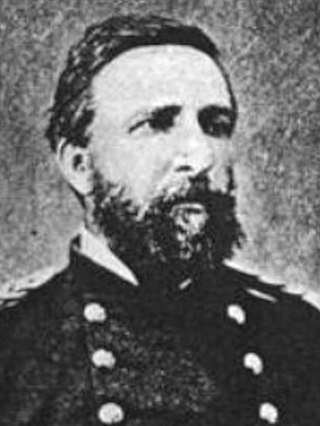
Charles Henry Smith was a brigadier general of the United States Army who was awarded the Medal of Honor for gallantry in the American Civil War.

Elmer Stiles Watson was an American military officer and politician who served as majority leader of the Connecticut State Senate from 1957 to 1959. Following graduation from high school, he took a job at his brother's insurance agency. He also joined the Connecticut National Guard and served with the United States Army in World War II. He remained with the Connecticut National Guard after the war and served as its commanding officer from 1949 to 1951.














